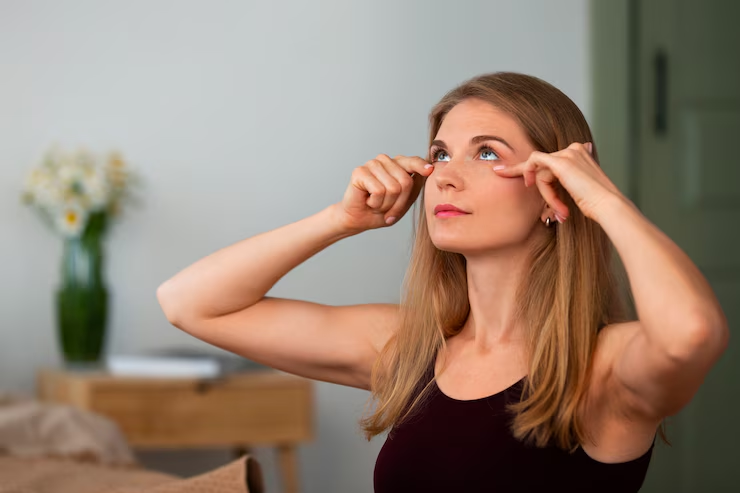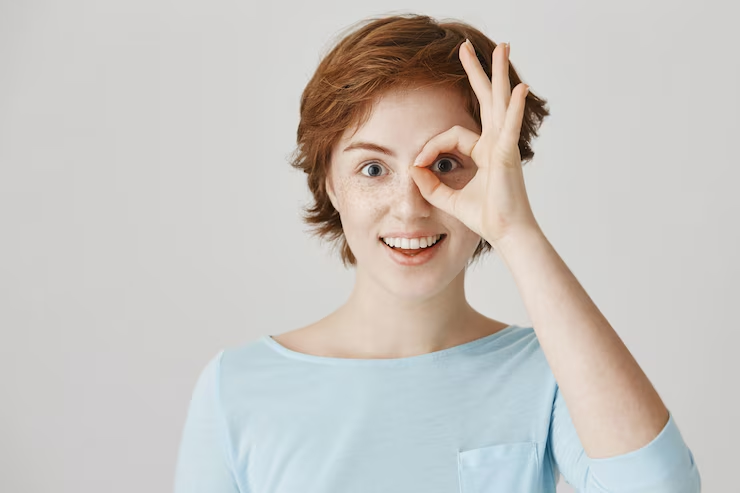Table of contents
In recent years, cannabidiol (CBD) has been extensively studied for its wide-ranging health benefits, from pain relief to anxiety reduction. But one area that’s drawing growing attention from researchers and wellness enthusiasts alike is the potential of CBD to support eye health. As vision-related conditions continue to rise—especially with increased screen time and aging populations—many are asking, can CBD help with eye health?
Let’s explore the current science, potential benefits, and safety considerations around CBD help with eye health, and what emerging research has uncovered so far.
The Endocannabinoid System and the Eyes

To understand how CBD may help with eye health, we first need to understand how the endocannabinoid system (ECS) works. The ECS is a complex cell-signaling system present throughout the body, including in the eyes. It plays a role in maintaining balance across various bodily functions like inflammation, immune response, and even intraocular pressure (IOP)—a key factor in glaucoma.
CBD, a non-psychoactive compound found in hemp and cannabis plants, interacts with the ECS in ways that could influence ocular health. Researchers believe that by modulating the ECS, CBD may offer therapeutic value for certain eye conditions.
How Can CBD Help with Eye Health?

Although research is still in its early stages, here are some areas where CBD help with eye health is being explored:
1. Glaucoma and Intraocular Pressure
Glaucoma is a serious eye condition caused by increased pressure in the eye that can lead to optic nerve damage and vision loss. Some studies have shown that cannabinoids—including CBD—can influence IOP. However, results are mixed. While THC has demonstrated a temporary reduction in IOP, CBD’s effect is less clear and may even increase pressure in some cases.
2. Anti-Inflammatory Effects
Chronic inflammation in the eye can lead to conditions such as uveitis or macular degeneration. CBD is known for its strong anti-inflammatory properties, which might help reduce inflammation in ocular tissues and protect vision.
3. Neuroprotection
CBD has shown potential in protecting nerve cells from damage—a benefit that could translate to protecting the optic nerve, especially in diseases like glaucoma or diabetic retinopathy.
4. Dry Eye and Tear Production
Dry eye syndrome, often caused by aging or screen exposure, affects millions of people. Some researchers are studying whether CBD may affect tear production or inflammation in the tear glands to alleviate symptoms.
5. Retinal Diseases
Conditions like retinitis pigmentosa and age-related macular degeneration involve oxidative stress and cell damage. CBD’s antioxidant properties may help reduce oxidative damage in retinal cells, though more research is needed.
Safety and Concerns with Using CBD for Eye Health

While CBD help with eye health sounds promising, it’s important to proceed with caution:
- Not FDA-approved: No CBD product has been approved by the FDA specifically for eye health.
- Possible IOP Increase: Some studies suggest CBD may raise intraocular pressure, which could worsen glaucoma.
- Lack of long-term studies: Research on the effects of CBD on eye tissues is still limited and mostly in animal models.
Always consult with an ophthalmologist or healthcare provider before using CBD for any eye condition.
FAQs About CBD Help with Eye Health
CBD may offer anti-inflammatory and neuroprotective benefits, but more research is needed. Consult your doctor before using it for any eye issue.
Unlike THC, CBD does not consistently lower eye pressure and may raise it in some individuals. It is not currently recommended as a treatment for glaucoma.
A few experimental products exist, but no CBD eye drops are FDA-approved for medical use. Be cautious of unregulated brands.
CBD’s anti-inflammatory properties may help reduce discomfort from dry eye or strain, but evidence is still inconclusive.
Topicals and oral tinctures are most commonly used. Avoid applying any CBD product directly to the eye unless specifically formulated for ocular use and prescribed by a professional.
Final Thoughts
So, can CBD help with eye health? The answer is: potentially, but we’re not there yet. Early research shows that CBD holds promise in reducing inflammation, protecting nerve cells, and mitigating oxidative stress—factors that are key in maintaining healthy vision. However, the lack of conclusive human studies and the risk of increased intraocular pressure mean that CBD for eye health should be approached cautiously and with medical guidance.
As researchers continue to uncover the full scope of CBD help with eye health, we may soon have better, clearer answers. Until then, stay informed and always prioritize professional advice over anecdotal evidence.





